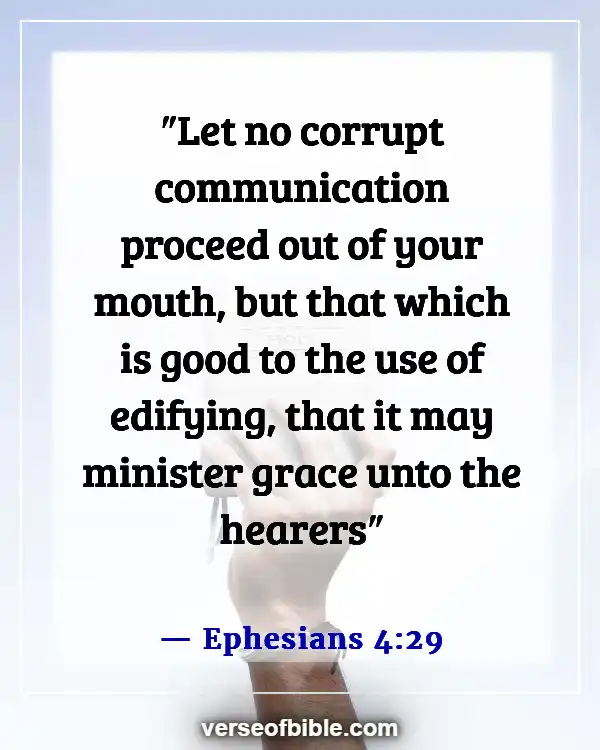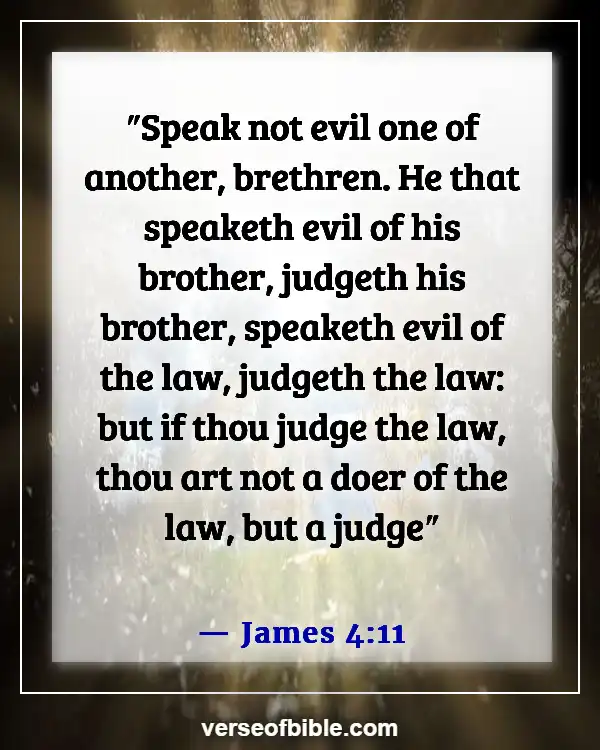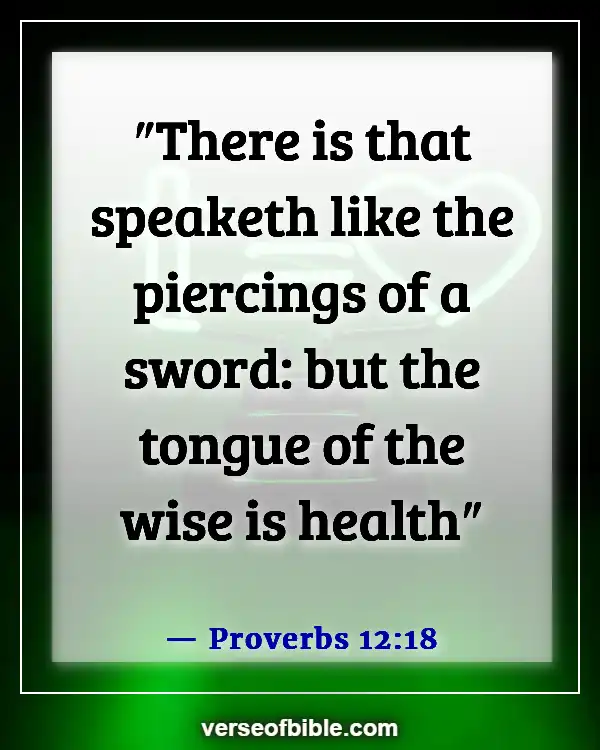Bible Verses About Saying Bad Words And Languages

Friends, if you’re searching for “Bible Verses About Saying Bad Words And Languages,” then today’s content is for you. Here, I share Bible verses that will really help you better understand the importance of our speech according to the Scriptures. These passages highlight God’s perspective on the power of our words and the need for clean language. Let’s explore what the Bible says about controlling our tongues and using our speech to honor God and uplift others.
Introductions
Dear brothers and sisters, today we’ll explore what the Bible says about using bad words and inappropriate language. This is a crucial topic that impacts our daily lives and our connection with God. If you find this message helpful, please share it with others who might benefit from it.
The Bible clearly warns us against using foul language, cursing, and speaking carelessly. Our words carry weight, and as followers of Christ, we’re called to use them for good. The tongue may be small, but it can cause great harm or bring tremendous blessings.
God wants us to use our speech to uplift others, not bring them down. When we use bad words or speak harshly, we’re not showing the love and grace of Jesus. Instead, we’re giving in to our sinful nature and potentially hurting those around us.
The Bible teaches that our words reveal what’s in our hearts. If we’re constantly using bad language, it might be a sign that we need to examine our hearts and ask God to help us change from within.
As Christians, we’re called to be set apart from the world. This includes how we speak. We should aim to use words that are pure, kind, and encouraging. This doesn’t mean we can’t express ourselves or be honest about our feelings, but we should do so in a way that honors God and respects others.
Remember, God hears everything we say. He knows our thoughts and the intentions behind our words. When we use bad language, we’re not just potentially offending others, but we’re also grieving the Holy Spirit who dwells within us.
The Bible offers practical advice on controlling our tongues. We’re encouraged to think before we speak, to be slow to anger, and to let our speech always be gracious. This takes practice and self-control, but with God’s help, we can learn to use our words wisely.
Let’s challenge ourselves to be more mindful of our speech. When tempted to use bad words or speak harshly, let’s pause and ask God to help us choose better words. Let’s use our speech to encourage, comfort, and build up those around us.
Dear friends, now let’s look at the Bible verses below that address saying bad words and using inappropriate language.
Bible Verses About Saying Bad Words And Languages

“Whatsoever ye do in word or deed, do all in the name of the Lord Jesus, giving thanks to God the Father by him”— Colossians 3:17

“Let your speech be always with grace, seasoned with salt, that ye may know how ye ought to answer every man”— Colossians 4:6

“Let no corrupt communication proceed out of your mouth, but that which is good to the use of edifying, that it may minister grace unto the hearers”— Ephesians 4:29

“Let all bitterness, wrath, anger, clamour, evil speaking, be put away from you, with all malice”— Ephesians 4:31

“Neither filthiness, nor foolish talking, nor jesting, which are not convenient: but rather giving of thanks”— Ephesians 5:4

“Wherefore, my beloved brethren, let every man be swift to hear, slow to speak, slow to wrath”— James 1:19

“If any man among you seem to be religious, bridleth not his tongue, but deceiveth his own heart, this man’s religion is vain”— James 1:26

“Out of the same mouth proceedeth blessing cursing. My brethren, these things ought not so to be”— James 3:10

“Speak not evil one of another, brethren. He that speaketh evil of his brother, judgeth his brother, speaketh evil of the law, judgeth the law: but if thou judge the law, thou art not a doer of the law, but a judge”— James 4:11

“In the multitude of words there wanteth not sin: but he that refraineth his lips is wise”— Proverbs 10:19
“The mouth of the just bringeth forth wisdom: but the froward tongue shall be cut out”— Proverbs 10:31

“An hypocrite with his mouth destroyeth his neighbour: but through knowledge shall the just be delivered”— Proverbs 11:9

“There is that speaketh like the piercings of a sword: but the tongue of the wise is health”— Proverbs 12:18

“He that keepeth his mouth keepeth his life: but he that openeth wide his lips shall have destruction”— Proverbs 13:3

“A soft answer turneth away wrath: but grievous words stir up anger”— Proverbs 15:1

“A wholesome tongue is a tree of life: but perverseness therein is a breach in the spirit”— Proverbs 15:4

“Pleasant words are as an honeycomb, sweet to the soul, health to the bones”— Proverbs 16:24

“He that hath knowledge spareth his words: a man of understanding is of an excellent spirit”— Proverbs 17:27

“Death life are in the power of the tongue: they that love it shall eat the fruit thereof”— Proverbs 18:21
“He that goeth about as a talebearer revealeth secrets: therefore meddle not with him that flattereth with his lips”— Proverbs 20:19
“Whoso keepeth his mouth his tongue keepeth his soul from troubles”— Proverbs 21:23
“A word fitly spoken is like apples of gold in pictures of silver”— Proverbs 25:11

“Where no wood is, there the fire goeth out: so where there is no talebearer, the strife ceaseth”— Proverbs 26:20

“A fool uttereth all his mind: but a wise man keepeth it in till afterwards”— Proverbs 29:11
“Put away from thee a froward mouth, perverse lips put far from thee”— Proverbs 4:24
“A false witness that speaketh lies, he that soweth discord among brethren”— Proverbs 6:19

“But I say unto you, That every idle word that men shall speak, they shall give account thereof in the day of judgment”— Matthew 12:36

“Not that which goeth into the mouth defileth a man; but that which cometh out of the mouth, this defileth a man”— Matthew 15:11

“But I say unto you, That whosoever is angry with his brother without a cause shall be in danger of the judgment: whosoever shall say to his brother, Raca, shall be in danger of the council: but whosoever shall say, Thou fool, shall be in danger of hell fire”— Matthew 5:22

“Judge not, that ye be not judgedFor with what judgment ye judge, ye shall be judged: with what measure ye mete, it shall be measured to you again”— Matthew 7:1-2

“Set a watch, O Lord , before my mouth; keep the door of my lips”— Psalm 141:3

“Let the words of my mouth, the meditation of my heart, be acceptable in thy sight, O Lord , my strength, my redeemer”— Psalm 19:14

“Keep thy tongue from evil, thy lips from speaking guile”— Psalm 34:13
“I said, I will take heed to my ways, that I sin not with my tongue: I will keep my mouth with a bridle, while the wicked is before me”— Psalm 39:1
“Sound speech, that cannot be condemned; that he that is of the contrary part may be ashamed, having no evil thing to say of you”— Titus 2:8

“To speak evil of no man, to be no brawlers, but gentle, shewing all meekness unto all men”— Titus 3:2
“Be not rash with thy mouth, let not thine heart be hasty to utter any thing before God: for God is in heaven, thou upon earth: therefore let thy words be few”— Ecclesiastes 5:2

“Bless them which persecute you: bless, curse not”— Romans 12:14
“Their throat is an open sepulchre; with their tongues they have used deceit; the poison of asps is under their lipsWhose mouth is full of cursing bitterness”— Romans 3:13-14

“Finally, brethren, whatsoever things are true, whatsoever things are honest, whatsoever things are just, whatsoever things are pure, whatsoever things are lovely, whatsoever things are of good report; if there be any virtue, if there be any praise, think on these things”— Philippians 4:8

“Thou shalt not bear false witness against thy neighbour”— Exodus 20:16
“Thou shalt not go up down as a talebearer among thy people: neither shalt thou stand against the blood of thy neighbour; I am the Lord”— Leviticus 19:16

“A good man out of the good treasure of his heart bringeth forth that which is good; an evil man out of the evil treasure of his heart bringeth forth that which is evil: for of the abundance of the heart his mouth speaketh”— Luke 6:45

“But if ye bite devour one another, take heed that ye be not consumed one of another”— Galatians 5:15
Conclusion
From these verses, we learn that our words hold tremendous power and reflect the condition of our hearts. God calls us to use our speech to build up, encourage, and spread love rather than tear down or harm others. We are reminded that profanity, crude jokes, and hurtful language have no place in a believer’s life.
To apply these teachings, we should cultivate self-control and mindfulness in our speech. This involves being aware of our words, their impact on others, and their alignment with our faith. We can practice replacing negative language with positive, uplifting words. When tempted to use inappropriate language, we should pause and consider whether our words honor God and benefit those around us.
Additionally, we can seek accountability from fellow believers and ask for God’s help in transforming our speech habits. By focusing on gratitude, kindness, and truth in our conversations, we can become powerful witnesses for Christ and create a more positive environment in our communities.
More Bible Topics
- Bible Verses About Remembering The Past
- Bible Verses To Make You Happy
- Bible Verses About Being Ready For The Second Coming
- Scriptures On Knowing God Intimately
- God Has A Purpose For Your Life Bible Verses
- Pastor Appreciation Bible Verses To Honor Pastors
- Bible Verses About Guarding Your Eyes
- Bible Verses About The Heart Of A Woman
- Bible Verses About Changing Your Mindset